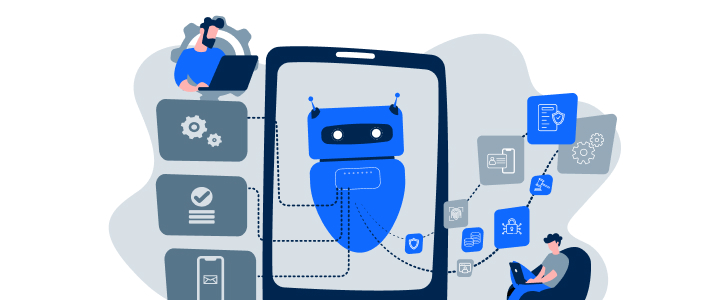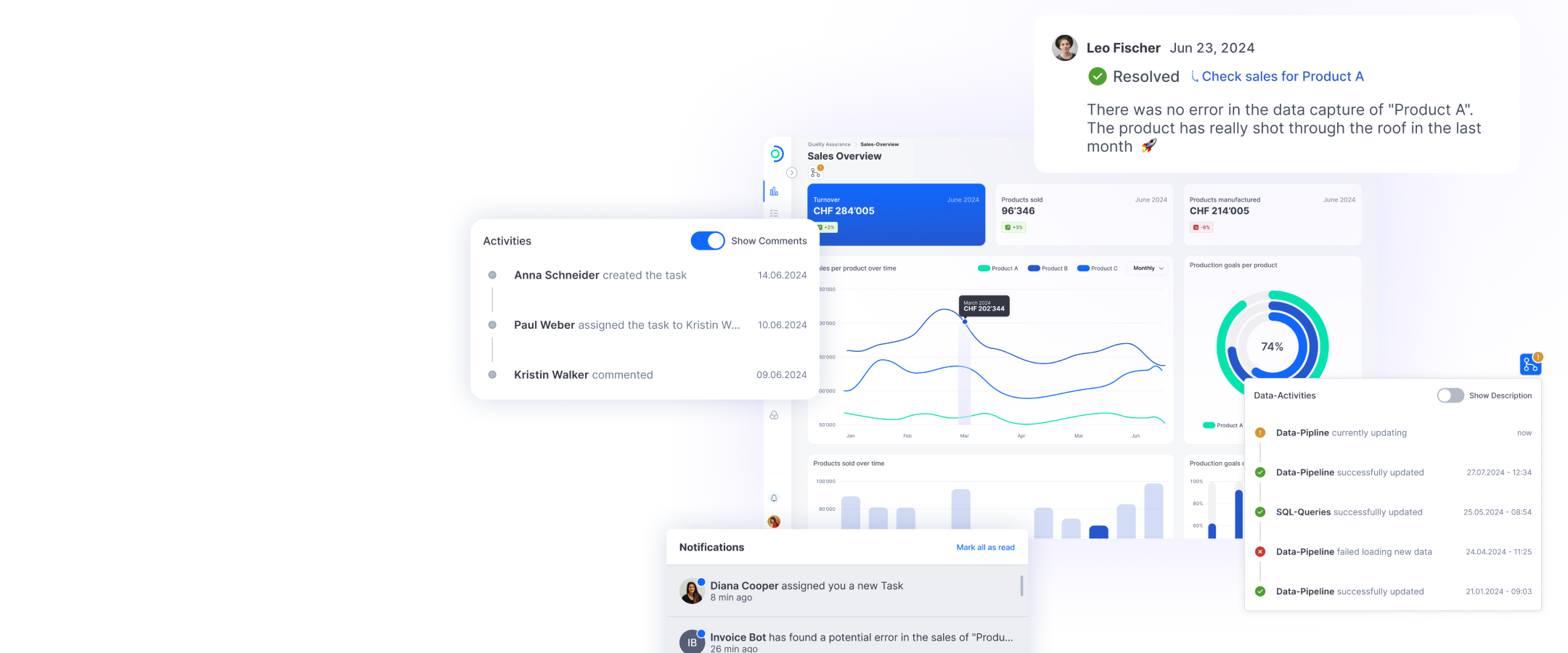The Benefit of AI in Desk Booking
AI and desk booking // In the aftermath of the global pandemic, the traditional office landscape has undergone a profound transformation. As remote working became the new norm, demand for desk booking systems initially decreased. However, as organizations begin to navigate the complexities of hybrid work models, the need for flexible and efficient workspace management solutions has reached new heights. We show how AI can help.
While manual desk booking systems have historically struggled with low employee adoption rates, automated sensor-based systems have emerged as a promising alternative. However, their widespread adoption has been hindered by the prohibitive costs associated with deploying and maintaining the infrastructure. In this blog post, we'll explore how artificial intelligence (AI) is revolutionizing desk booking systems, overcoming the limitations of traditional approaches, and paving the way for a more agile and cost-effective solution.
The Evolution of Desk Booking
While simple in concept, manual desk booking systems present their own set of challenges. The primary drawback is the cumbersome nature of the process. Employees often find it burdensome to constantly think about and manage their workspace bookings. This constant mental overhead can affect their productivity and overall satisfaction.
On the other hand, sensor-based systems, while promising in their ability to automate the booking process, come at a prohibitive cost. The infrastructure required to deploy sensors, along with ongoing maintenance costs, can be a significant financial barrier to adoption for many organizations. Despite their potential to streamline the booking process and provide real-time occupancy insights, sensor-based systems have faced challenges in achieving widespread adoption, particularly among smaller organizations with limited resources.
In contrast, AI-driven solutions use advanced algorithms to analyze past booking patterns and current availability, enabling optimized scheduling and efficient space utilization. By automating the booking process and providing personalized recommendations, AI-powered systems offer a streamlined and user-friendly approach to workplace management, overcoming the limitations of both manual and sensor-based alternatives.
Optimized Scheduling with AI
AI-powered solutions have become instrumental in reshaping desk booking practices. By addressing the limitations of traditional and sensor-based systems, AI-driven scheduling offers a transformative approach to workplace management. Unlike manual methods that rely on employee discretion, AI algorithms analyze historical booking data and real-time availability to seamlessly allocate desks. This data-driven approach not only maximizes space utilization, but also ensures that employees always have access to appropriate work environments by suggesting alternative workspaces if the preferred space is unavailable. In addition, these solutions can automatically cancel upcoming bookings in the event of an absence due to business travel, vacation, or other reasons, optimizing space utilization and streamlining the booking process. By leveraging AI, organizations can achieve new levels of efficiency and agility in desk booking, revolutionizing the way workspaces are managed and utilized.
Personalized recommendations for a better user experience
Beyond optimizing scheduling, AI-powered desk booking systems offer a personalized user experience tailored to individual preferences and work habits. These systems leverage past booking patterns and user behavior to suggest desks based on factors such as proximity to colleagues, preferred workspace environment, and access to amenities. In case the preferred space is unavailable, AI-driven booking systems can suggest alternative workspaces, ensuring that employees always have access to appropriate work environments. AI-powered desk booking solutions can also detect onsite meetings and prompt users to book workspaces, optimizing resource utilization. Finally, they analyze colleagues' bookings to identify optimal times for collaboration, increasing productivity. This personalized approach not only improves user experience and satisfaction, but also fosters a sense of ownership and comfort in the workplace. Employees feel empowered to choose workspaces that meet their needs, leading to increased engagement and productivity. With AI-driven recommendations, organizations can create a more dynamic and adaptable work environment that meets the diverse needs of their workforce.
AI leads to fundamental change in the use of workplaces
In summary, the integration of AI into desk booking systems represents a transformative shift in workplace management practices. As organizations address the challenges of the global pandemic, the need for flexible and efficient workplace solutions has never been greater. While manual and sensor-based systems have their limitations, AI-powered solutions offer a compelling alternative that addresses these challenges while delivering several key benefits:
- In summary, the integration of AI into desk booking systems represents a transformative shift in workplace management practices. As organizations address the challenges of the global pandemic, the need for flexible and efficient workplace solutions has never been greater. While manual and sensor-based systems have their limitations, AI-powered solutions offer a compelling alternative that addresses these challenges while delivering several key benefits:
- Cost-effectiveness: AI-driven desk booking systems are significantly more affordable than sensor-based alternatives. The initial investment is lower, making them accessible to organizations of all sizes, from startups to large enterprises.
- Efficiency: AI-driven desk booking systems optimize scheduling, ensuring seamless desk allocation based on historical data and real-time availability. This maximizes space utilization and minimizes conflicts, resulting in more efficient workspace management.
- Personalization: Unlike manual systems, AI-powered solutions offer personalized recommendations tailored to individual preferences and work habits, improving the overall user experience. Automation: AI-powered solutions automate various aspects of the booking process, such as suggesting alternative workspaces when the preferred space is unavailable and automatically canceling bookings for absences due to business travel or other reasons. This streamlines the booking process and reduces the administrative burden on employees.
As organizations continue to embrace hybrid work models and prioritize employee well-being, AI-based solutions will undoubtedly play a central role in shaping the future of the modern workplace. By harnessing the power of AI, organizations can achieve new levels of efficiency, productivity, and employee satisfaction, ultimately driving success in today's dynamic business environment.
For these reasons, we at ti&m will be expanding our workplace booking system to include precisely these functions. ti&m Places will be further developed into an AI-supported tool for hybrid working from summer 2024. Test our solution now for 30 days free of charge.











